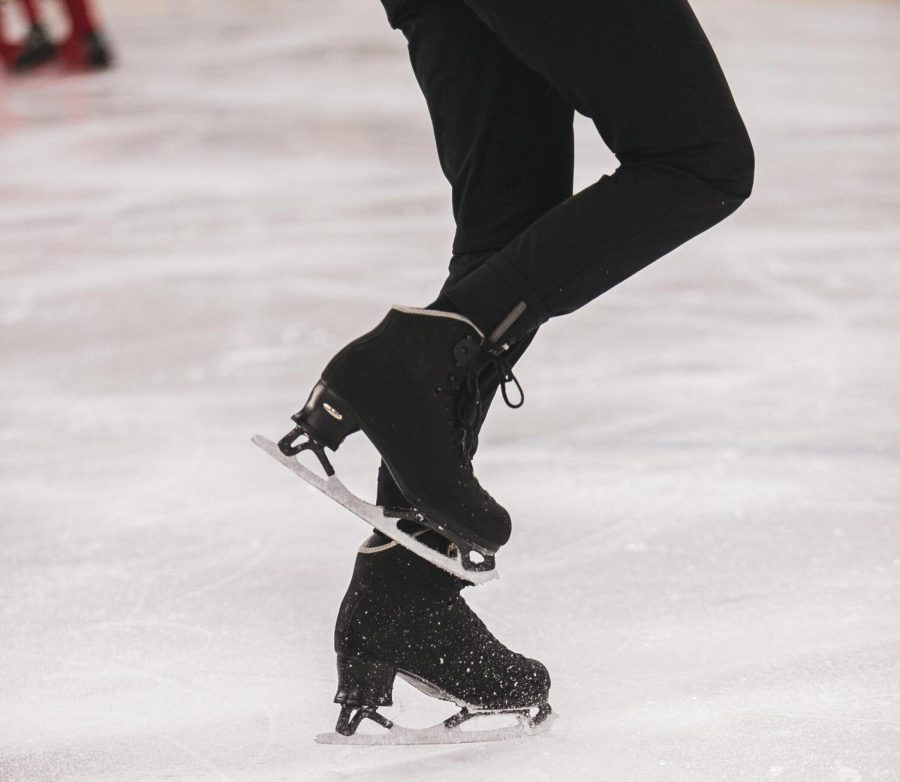Eteri Tutberidze: The Abuse in Figure Skating Needs to End
May 4, 2022
If you’re caught up with Olympic Women’s Figure Skating, you may have noticed that, recently, a lot of the medalists come from Russia, under the same coach: Eteri Tutberidze. Her career began in 2014, when Tutberidze coached Yulia Lipnitskaya, a 15-year-old figure skater competing in the Olympics. Lipnitskaya performed almost perfectly at the Sochi Games, calling attention to her and Tutberidze. Ever since, Tutberidze became famous for coaching Russian girls who excelled and dominated at the Olympics.
However, as her fame continued, fans began to notice a concerning pattern in Tutberidze’s girls. Each of them began retiring early, around the age of 17, with severe injuries: a byproduct that isn’t worth the short-lived excellence.
For example, let’s look at Evgenia Medvedeva, one of the world’s most famous figure skaters. Coached by Tutberidze, Medvedeva won every major competition in 2016 and 2017, and she was consequently the favorite to win the 2018 Olympics. But when Medvedeva turned 18, she began to fall in her routines, and her 15-year-old teammate—Alina Zagitova—took the spotlight. In the 2018 Olympics, Zagitova ended up winning gold, and Medvedeva earned silver.
This pattern continued with Zagitova, and fans began to connect each of the girls’ experiences. Yulia Lipnitskaya retired at the age of 19 and suffered from hip injuries and anorexia afterward. Evgenia Medvedeva retired at 22 with a chronic back injury that prohibited her from turning to her left. Alina Zagitova peaked at 15 and took her hiatus at 17, the age that fans have dubbed the “Eteri expiration date.”
Clearly, Tutberidze’s methods have an evident lack of sustainability. Although she’s revolutionized figure skating, figure skaters are permanently breaking their bodies to fleetingly dominate a sport. Historically, this isn’t normal: other renowned skaters didn’t retire so young, nor did they retain the same injuries in such short amounts of time. For example, Michelle Kwan, a former American figure skater, retired at 41. So what sets Tutberidze’s coaching methods apart from everyone else’s?
In short, Tutberidze’s tactics revolve around body weight. Typically, to perform triple jumps and quadruple jumps, a figure skater needs a lot of muscle and strength. Before 2018, quadruple jumps in women’s figure skating were practically unheard of. However, Tutberidze found that, instead of relying on muscle, it’s possible to instead utilize a low body weight and a prepubescent body.
Teenage girls happen to have the ideal body type for performing quadruple jumps, as lighter, leaner skaters have an advantage in getting up in the air and spinning faster. Puberty, on the other hand, tends to add more weight, height, and fat to a woman’s body, therefore hindering a woman’s ability to perform difficult jumps. Under Tutberidze’s guidance, her skaters worked to prolong their skating career by delaying puberty—or, in other words, by not eating.
Former Tutberidze girls spoke out about their experience under her coaching, claiming her methods have led to injury, bulimia, and anorexia. During the 2014 Olympics, Lipnitskaya had a diet of solely powdered substances. Furthermore, during the 2018 Olympics, Medvedeva and Zagitova were forbidden from drinking water throughout the competition, out of fear of swelling and excessive weight. In an interview, Zagitova explained how they could only rinse their mouths with water and spit it out afterward. Along with these damaging practices, Tutberidze girls have described daily weigh-ins, collapsing in pain after skating, inhaling smelling salts to keep from fainting, and retaining injuries from overtraining.
Rafael Arutyunyan, the coach of Olympic gold medalist Nathan Chen, criticized Tutberidze’s unsustainable coaching methods.
“I don’t really like drinking coffee from disposable cups,” said Arutyunyan. “Similarly, I don’t like onetime champions.”
Assuming that Tutberidze’s coaching stays the same, the cycle of “expiration dates” will likely continue with her next girls, who will fall victim to the same consequences their predecessors faced.
Tutberidze, and other coaches like her, undeniably deliver remarkable results, but the cost is overwhelming. Their abusive methods ruin and discard children’s bodies for a medal, and as shown by Medvedeva, the consequences of this kind of skating will follow them their entire lives. These girls should not be taken advantage of or viewed as disposable; this pattern of abuse in figure skating needs to end.
Photo courtesy of UNSPLASH.COM

